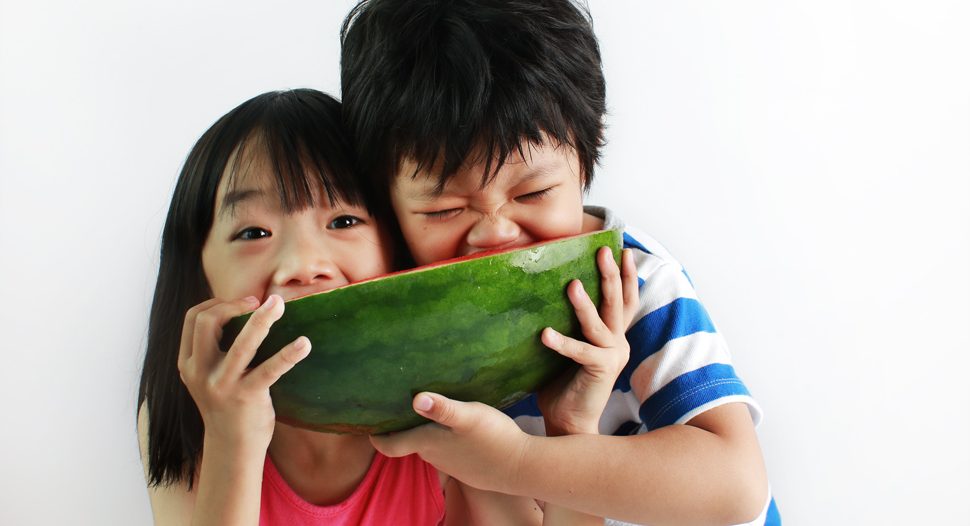Given the heat in Singapore, it comes as no surprise that parents worry and wonder if their kids get enough fluids every day. Parents know that they need to keep their little ones hydrated but what many may not know is that once a child complains of thirst, he or she is already losing fluids. Before you try to change your child’s drinking habits, you must first know the dangers and symptoms of dehydration.
Signs to look out for:
Dehydration occurs when more water and fluids leave the body than enter. The common symptoms are thirst, dry or sticky mouth, lethargy, headache, dizziness, and weakness in muscles. A good tip to find out if your kids are dehydrated is to check the elasticity of their skin. Pinch lightly their arms and see if the skin quickly goes back to normal or if it stays in the pinched shaped longer than usual. If this is the case, your kids don’t have enough fluids in their body.
Ways to stay hydrated:
- Water at a hand’s reachIn order to ensure your children drink more water, keep water readily accessible. Prepare a bottle of water to bring to school, have a cup of water placed on their study desk and even on the bedside table at night so that they can easily reach out for water.
- Fruits, juices and popsicles
Some fruits and vegetables like watermelons, cucumbers, strawberries and grapefruits are made of more than 90% of water and can help keep your kids stay hydrated. Cut fruits to bring to school as a snack, or make homemade juices for breakfast. Fresh fruit juices are a healthy alternative to pre-packaged juices. They have more vitamins and no added sugar. And for many juices, all you need is a blender. Add ice cubes and you can even make fruit popsicles! - Education is always key
Teaching your children about dehydration and its consequences, and cultivating good habits for hydration goes a long way. Make it a habit to drink a big glass of water before they leave for school and when they come back home. Meals should be accompanied with water. And beware of sports drinks as they are better suited for professional and long-term sports players. They provide a mix of energy and fluids but not the fluids that most young children need for hydration.
The ways listed above are not exhaustive but simple suggestions for drinking more fluids and water every day. Of course, should your child experience dehydration it is best to visit the doctor for qualified medical advice.



